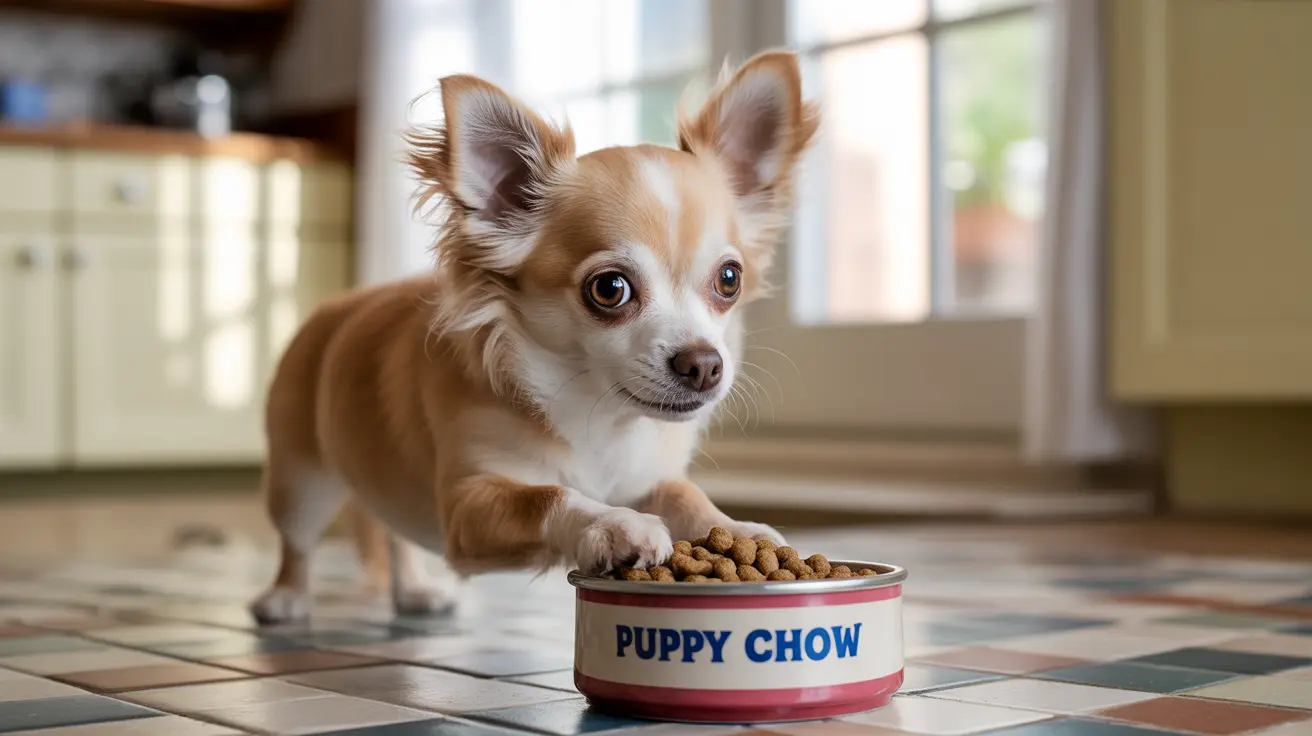As a pet owner, you might wonder if it's safe to feed your adult dog puppy food, especially in multi-dog households or when your grown dog sneaks bites from the puppy's bowl. While an occasional taste won't harm your adult dog, regularly feeding puppy food to mature dogs can lead to significant health issues. Let's explore why adult dogs need different nutrition and when exceptions might apply.
Understanding the Key Differences Between Puppy and Adult Dog Food
Puppy food is specifically formulated for growing dogs, with distinct nutritional profiles that differ significantly from adult dog food:
Calorie Content
Puppy food contains substantially more calories to support rapid growth and development. Adult dogs have lower energy requirements, and consuming these extra calories can quickly lead to unhealthy weight gain.
Protein and Fat Levels
Growing puppies need higher protein levels for muscle development and more fat for energy. Adult dogs require moderate amounts for maintenance, and excess can strain their organs and contribute to obesity.
Mineral Balance
The calcium and phosphorus levels in puppy food are calibrated for bone development. Adult dogs don't need these elevated mineral levels, and long-term exposure could potentially harm their kidney function.
Health Risks of Feeding Puppy Food to Adult Dogs
Weight Management Concerns
The most immediate risk of feeding puppy food to adult dogs is weight gain. Studies show that over 55% of adult dogs in the United States are already overweight or obese, and the higher caloric density of puppy food can worefront this issue.
Digestive Issues
Adult dogs may experience gastrointestinal upset when eating puppy food regularly. This can manifest as diarrhea, constipation, or general digestive discomfort.
Long-term Health Impacts
Chronic consumption of puppy food by adult dogs can lead to:
- Increased risk of pancreatitis
- Joint problems due to excess weight
- Kidney stress from higher protein levels
- Mineral imbalances affecting bone health
When Puppy Food Might Be Appropriate for Adult Dogs
There are specific situations where feeding puppy food to adult dogs might be beneficial, but only under veterinary supervision:
Pregnancy and Nursing
Pregnant or nursing dogs have increased nutritional needs that might be met by puppy food's higher caloric and nutrient content.
Recovery and Weight Gain
Dogs recovering from illness or severe malnutrition might benefit from puppy food's nutrient density temporarily.
Working Dogs
Extremely active working dogs or athletic breeds might require the higher energy content of puppy food, though specialized adult performance formulas are usually preferred.
Managing Multi-Dog Households
If you have both puppies and adult dogs, consider these strategies:
- Feed dogs in separate areas
- Supervise mealtimes
- Consider using all-life-stage food as a safe alternative
- Store puppy food in secure, adult-dog-proof containers
Frequently Asked Questions
Can adult dogs eat puppy food without any health risk, and what happens if they do?
While occasional consumption isn't dangerous, regular feeding of puppy food can lead to obesity, digestive issues, and long-term health problems in adult dogs due to excessive calories and nutrients.
What are the main differences between puppy food and adult dog food, and why do they matter for my dog's health?
Puppy food contains higher levels of calories, protein, fat, and minerals for growth and development. Adult dogs need lower levels for maintenance, and excess nutrients can lead to health issues.
How can feeding puppy food to my adult dog cause weight gain or other health problems?
Puppy food's higher caloric density and fat content can quickly lead to weight gain in adult dogs. This excess weight can strain joints, organs, and overall health, potentially leading to conditions like diabetes and arthritis.
Are there any situations when it's actually safe or recommended for adult dogs to eat puppy food?
Yes, under veterinary supervision, pregnant/nursing dogs, severely underweight dogs, or dogs recovering from illness might temporarily benefit from puppy food's higher nutrient content.
What should I do if my adult dog accidentally eats puppy food, and how do I prevent it in multi-dog households?
A single incident of eating puppy food won't harm your adult dog. To prevent regular access, feed dogs separately, supervise mealtimes, and store puppy food securely. In multi-dog households, consider using all-life-stage food as a safe alternative.
Conclusion
While puppy food isn't immediately dangerous to adult dogs, it's designed for growing puppies and isn't appropriate for regular adult dog nutrition. Stick to age-appropriate food for your adult dog's optimal health, and consult your veterinarian about any special dietary needs or circumstances that might require adjustments to their regular feeding routine.






